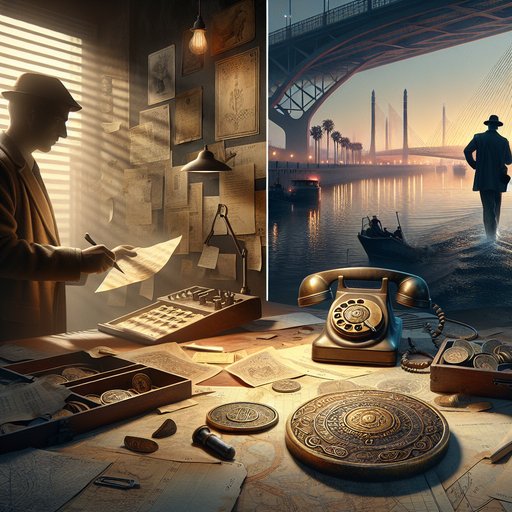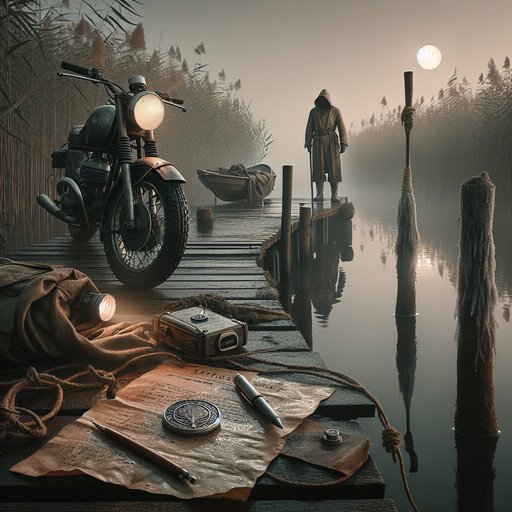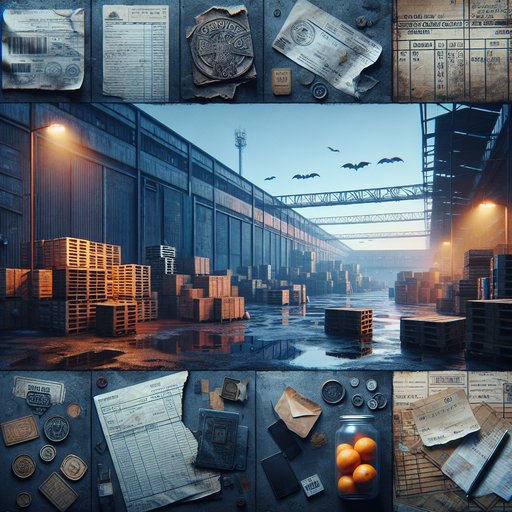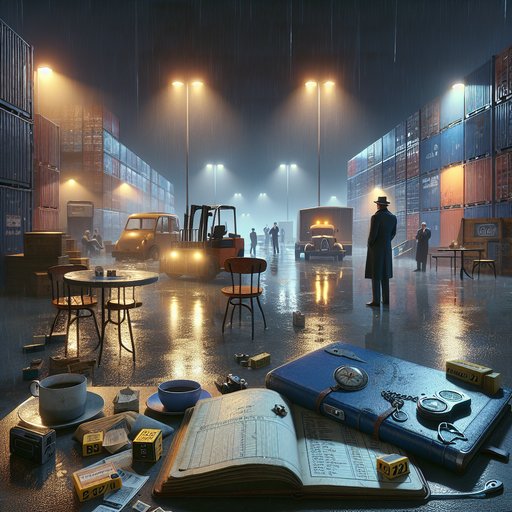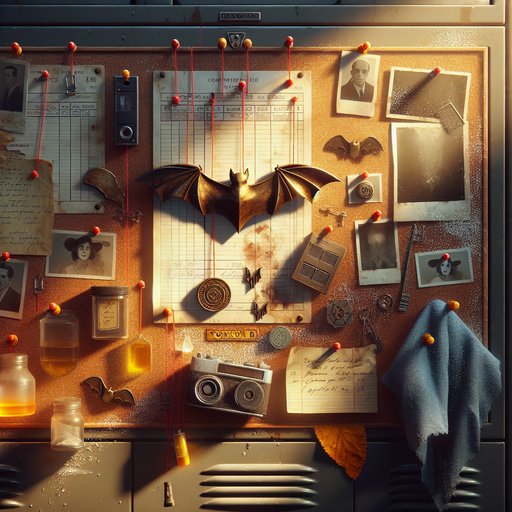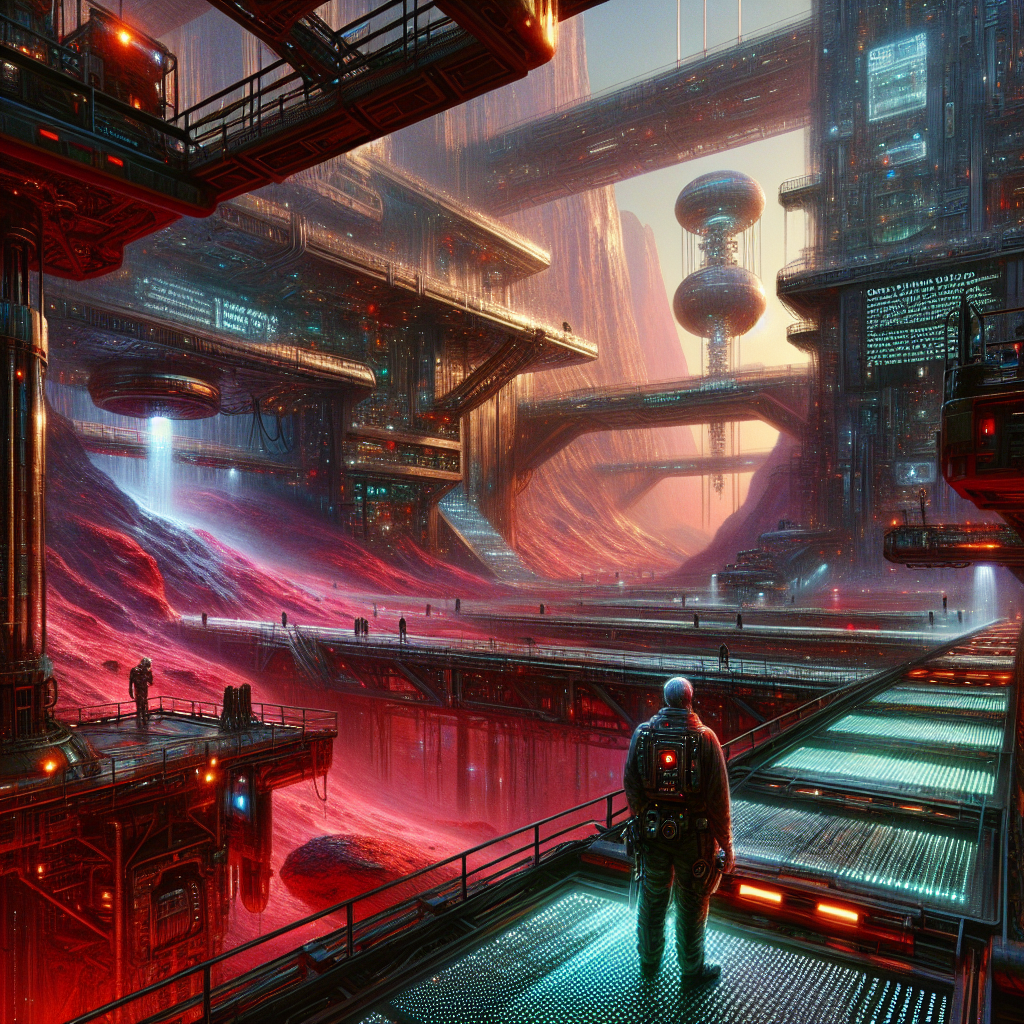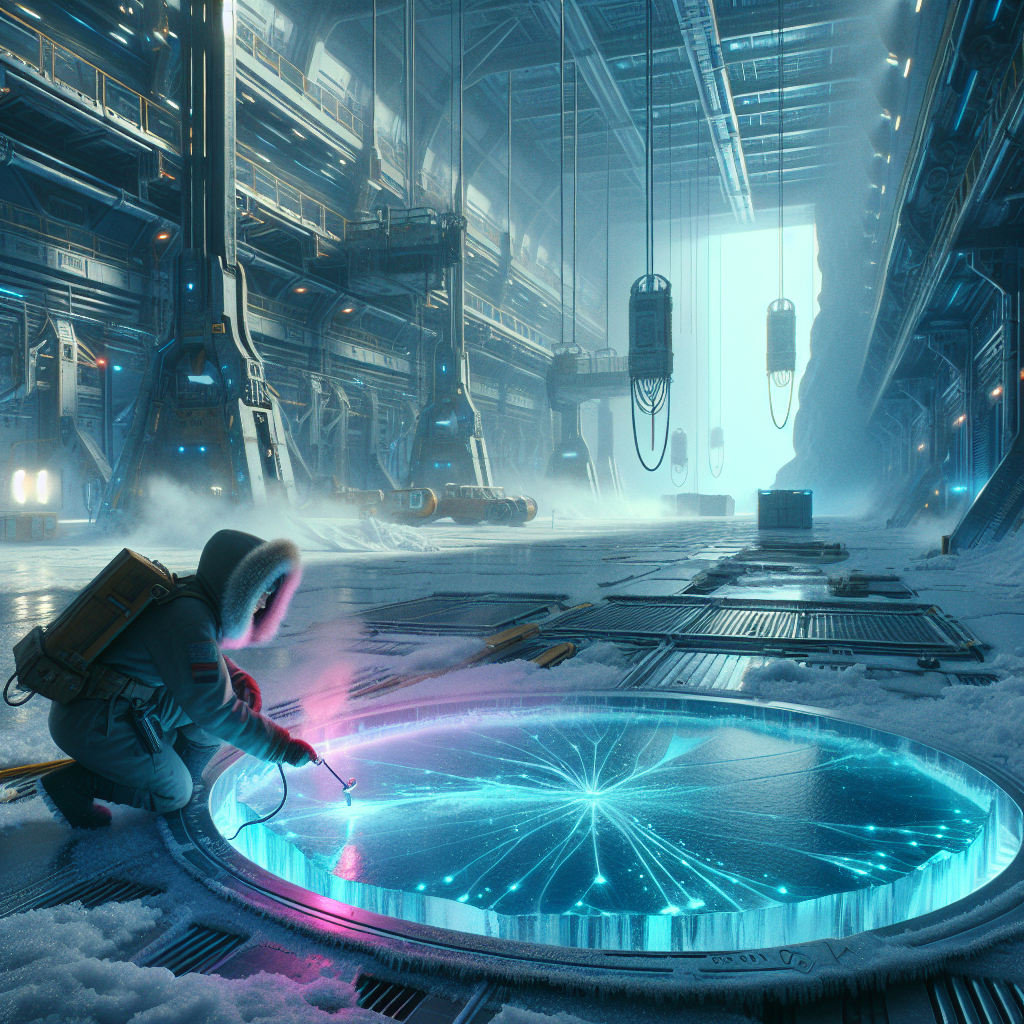CHAPTER 5 - The Key to the Sealed Room
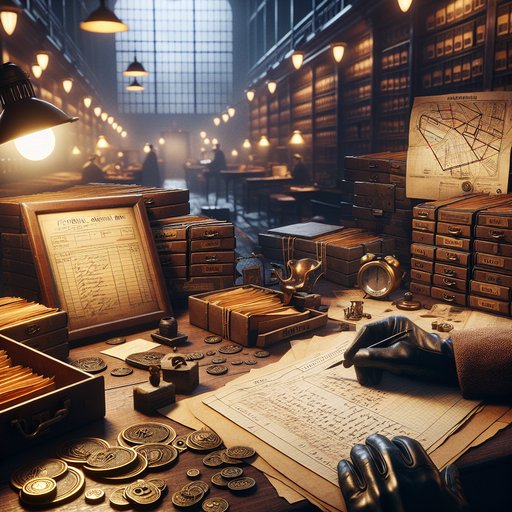
Haunted by the staged depot and a taunting call, Juan Ovieda cannot sleep, studying a ledger folio tying Blanca Ferrán to Token 7B and the cryptic code Almacén 14-1. Unexpected help arrives from Nuria Paredes, a judicial clerk who once studied under Juan’s late mother; she ushers him, on borrowed time, into the archive of Valencia’s Ciudad de la Justicia. There, among sealed files from a suppressed operation codenamed Murciélago, Juan discovers that Almacén 14-1 refers not to a port warehouse but to a judicial storage location. The files link bronze-and-enamel bat tokens to a private maritime circle, Beltrán shipping interests, and Conseller Vives, and include Blanca’s sworn statement about “bat nights” and crates masked with orange oil. Staring at evidence that echoes his brother’s death, Juan copies pages and takes rubbings until they narrowly evade discovery. Back at his portside office, he maps a network stretching from a century-old family pact to a current political cover-up, preparing to retrieve evidence bag 7B and find the sidelined prosecutor Andrea Luján. A threatening photo of him and Nuria in the archive arrives with a chilling timer, forcing Juan to choose which line to save first.
The mystery wouldn’t let him rest. Juan sat in the gray wash before dawn, the brass Saint Michael warm in his palm, the damp ledger folio naming Blanca Ferrán and Token 7B pinned under a paperweight shaped like a sail. The room smelled of old coffee and Turia dust; his walls were busy with maps, loops of red twine, and the new thread he refused to misplace again. Almacén 14-1, he whispered, tasting its misdirection, feeling the stage-managed depot still coating his tongue with orange oil and lies.
He chose a sand linen suit, tightened a narrow navy tie, slid into his scuffed Oxfords, and the squeak on his hallway’s tile was a reminder that some sounds tell on you even when you are trying to disappear. A soft knock broke the building’s hush. The woman in the frame held her shoulders like someone who spent hours over documents and had learned to hide effort: hair pinned, ink-smudged fingers, a neat blouse under an overcoat that didn’t fit this warm hour. “Nuria Paredes,” she said, eyes flicking over the medallion as if greeting an old friend.
“Your mother taught me history when I was fifteen. I work in the registry at the Ciudad de la Justicia, and I’ve heard the whispers; if we move now, there’s a thirty-minute window before the system syncs an access log.”
They crossed the early city by car, sunlight rummaging fingers through the branches along Gran Vía as office blinds cracked to life. The Ciudad de la Justicia rose like a glass drawer pulled out into Valencia’s light, cool air-conditioned breath spilling from its doors, the atrium a clean geometry of white and glass. A guard nodded at Nuria, glanced at Juan’s badge with that bureaucrat look of weighing forms against faces.
His Oxfords betrayed him again on polished marble, a brief squeak undermining invisibility. Nuria swiped them through double doors and said, “We are going to an archive that doesn’t technically exist on today’s schedule.”
Inside the cooled shadows of the records wing, fluorescents hummed and metal shelves arranged history into numbers, into the fiction that order saves truth from being buried. Nuria led him to a lateral corridor where a red LED on a cabinet blinked like a restless eye. “Pieza separada 17/2016,” she whispered.
“Murciélago.” Juan’s hand tightened around the medallion, and he glanced down at the handwritten notation on his folio—Almacén 14-1—just as she opened a cage door labeled Almacén judicial 14, Estante 1, its plastic tag cracked along a diagonal like a cursive scar. Boxes sat with that mute weight of institutional forgetting. He slit one’s tape and found a packet of photos: bronze-and-enamel tokens with Valencia’s bat, their backs stamped with tiny serial marks, an invoice from Talleres Roca where the faint 7B curves matched the token in his pocket. A typed memo cross-referenced Beltrán y Rojas shipments and charity exemptions, an asterisk leading to “Círculo Náutico (socio don V.),” names clipped into initials as if scandal could be gentled by scissors.
He read transcripts of intercepted conversations built out of euphemism—“bat nights,” “favors sent downriver”—and a witness protected as B.F. describing crates made to smell like oranges to fool dogs that knew diesel and fear. It felt like stepping into a story he had been reading backwards for days. “We thought we had it,” Nuria said, finger hovering over a judge’s signature.
“Judge Montfort sealed the case after the lead prosecutor was moved to administrative limbo. There’s an order here for the destruction of a duplicate ‘Libro de Donativos’ copy; someone scrawled ‘no procede por patrimonio’ in the margin, as if heritage pricked a conscience just enough to slow a shredder.” Another envelope bore the number 7B in heavy ink, its corner scuffed. Juan slid out a single sheet: Blanca’s sworn statement, careful script like a map of caution, describing a silver-haired man called Don V. paying in tokens while men in esparto vests masked oil with orange rind and talked of a ‘pacto de familia’ safeguarded in Notaría Lirio, 1912.
The chart tucked behind it traced donations against spikes in overdoses in seaside neighborhoods he knew by the names of boys now ghosting his runs, and one line, colder than the rest, marked the spring his brother died. Juan felt the old ache hammer up from the ribcage, a dull wave steadying itself behind his sternum. He touched Saint Michael like a radio tuning to a frequency that belonged to his mother, to the mornings she sent him out with a kiss and a reminder that truth, too, had a curriculum. He slipped his phone into a Faraday sleeve and used a pencil to take rubbings of embossed seals, the graphite blooming the watermark’s bat into visibility on a blank sheet.
The clock in his head was a metronome: footsteps, doors, the world’s impatient throat clearing. Shoes clicked in the corridor. Nuria snapped a file shut and stepped into the doorway, her tone all fatigue and bureaucratic muscle memory. “Calibration,” she told a man in a blazer who wore authority like a too-tight shirt; “the scanner on fourteen was misreading stamped seals.” He peered past her, eyes wanting to gather more than he had permission to know, but he lacked the personal courage to insist.
She steered Juan into a microfiche room where dust slept on reels and slid him three printouts and a USB stick taped under a file tab. “An hour before the access log syncs; after that, any queries will throw a red flag,” she breathed. “I am doing this for your mother, so take more than you think you’ll need and less than they’ll notice.”
The printouts sang in his hands: a shipping manifest number matching the staged depot, a cross-reference to an internal email from the Consellería, Vives’s aide asking whether “B.F. can be discredited preemptively,” and an archive notation that Almacén 14-1 was the code for this very shelf.
Andrea Luján’s name appeared in the margins, her notes neat, then a thin line drawn through her signature with the cold efficiency of sidelining. Juan mapped connections in his head as they exited: Beltrán’s foundation, the club, the Conseller, a family pact older than anyone alive still flexing the courage of old money in bright Valencian air. Outside, the atrium seemed too clean, too bright, the rule of glass suggesting transparency while everything important took place in the blinds’ shade. Nuria didn’t look at him when she said, “They will come for my terminal first; they always start by blaming a machine.”
Back at the borrowed office near the port, gulls wrote cursive arcs above cranes, and the smell of brine pushed through a cracked window.
Juan pinned copies to his corkboard: the token invoice, Blanca’s line about Don V., the judge’s margin note pointing toward Notaría Lirio, 1912—the century reaching a hand from behind time’s curtain. The thread of Almacén 14-1 now ran cleanly to a judicial shelf, not a warehouse; the staged depot snapped into place as theater performed for a man they thought could still be frightened off. He called the retired sergeant, cross-checked names, then wrote Andrea Luján on a sticky note and underlined it twice. Evidence bag 7B, he thought; if it existed, it might be here in storage, unless someone had counted on no one ever thinking to look under the fluorescent hum of the law.
He shrugged into his weathered leather jacket, the linen collar tucked inside, and reached for the Moto Guzzi’s keys, when his phone buzzed inside the Faraday sleeve like a mosquito denied blood. He hesitated, pulled it out, and stared at the message that bloomed on the screen—a photo of him and Nuria in the archive, her hand on the 14-1 tag, time-stamped eighteen minutes ago, the angle one only achieved by a camera inside. A second message followed: a countdown clock blinking sixty minutes and a sentence that tasted like copper: “Borrowed time ends for her unless you return what you took.” Juan closed his eyes and felt the medallion’s cool face, counting along with the seconds he didn’t have. Which line would he follow first, and which one would he break?


































